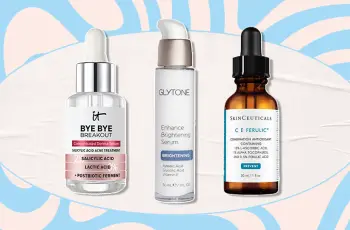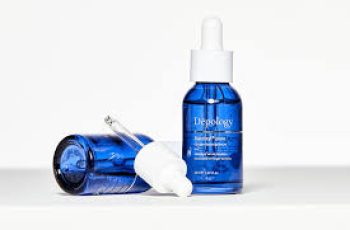
How to Tighten and Firm Loose, Sagging Skin: Treatments, Creams, and Natural Remedies
Loose or sagging skin is a common concern that can arise due to a variety of factors such as aging, weight loss, sun damage, and genetic predispositions.
While it’s a natural part of life, many individuals seek ways to improve the elasticity and firmness of their skin to maintain a youthful and toned appearance.
From laser technologies and cosmetic products to natural supplements and dietary changes, there are a multitude of options to address this issue.
This comprehensive guide explores the most effective methods for tightening and firming loose skin, including professional treatments, over-the-counter products, and lifestyle changes that can make a noticeable difference in your skin’s health and resilience.
Understanding the Causes of Loose Skin
Before diving into the treatments, it’s essential to understand what causes the skin to lose its firmness:
Aging: As we age, our skin produces less collagen and elastin, the key proteins responsible for skin firmness and elasticity.
Genetics: Some people are genetically predisposed to loose skin, especially around the face, neck, and arms.
Pregnancy: The skin stretches significantly during pregnancy, particularly around the abdomen, which can lead to sagging postpartum.
Rapid Weight Loss: Losing a large amount of weight in a short time doesn’t give the skin enough time to adapt, often resulting in excess loose skin.
Sun Damage: UV exposure breaks down collagen and elastin in the skin, accelerating the aging process and reducing the skin’s ability to remain firm.
The main biological culprit here is the loss of elastin, a structural protein that gives the skin its ability to “snap back” after being stretched.
Unfortunately, current technologies cannot replace lost elastin, so the focus of most treatments is on stimulating collagen, which helps tighten and support the skin.
Laser and Energy-Based Skin Tightening Treatments
How Laser Skin Tightening Works
Laser treatments use focused energy to heat the deeper layers of the skin. This heat causes immediate contraction of existing collagen fibers and stimulates the production of new collagen over time.
For these treatments to be effective, the skin must be heated to at least 149°F (65°C). At this temperature, collagen fibers shrink and thicken, resulting in an immediate tightening effect.
When the skin undergoes this thermal stress, a natural wound-healing response is triggered, encouraging fibroblasts (collagen-producing cells) to generate new, denser collagen, which improves firmness and texture.
Popular Devices for Skin Tightening
Different technologies are available to deliver this heat:
Laser Devices:
ClearLift
Er:YAG Lasers
Fraxel
Radiofrequency Devices (RF):
Thermage
Pelleve
Exilis
Venus Viva
Ultrasound-Based Devices:
Ultherapy
Doublo
Combination Devices:
VShape Ultra (combines ultrasound and RF)
Emerging Technologies:
Cold Atmospheric Plasma (CAP)
Thermomechanical Fractional Injury (TMFI)
Important Note: Not all devices reach the necessary temperature threshold to create real change. If the treatment is painless, it is likely not working as intended.
Effective skin tightening typically involves some level of discomfort.
Topical Skin Tightening Products
While professional treatments can yield impressive results, many people turn to creams and serums as a first step or complementary approach.
These products work best for prevention and mild skin laxity.
Do Facelift Creams Really Work?
Some firming creams can temporarily improve the appearance of sagging skin by:
Hydrating and plumping the skin
Creating a film on the skin that tightens as it dries
Preventing collagen and elastin breakdown
Stimulating collagen production over time
Key Ingredients to Look For
Retinol and Retinoids: Vitamin A derivatives that boost collagen production and prevent collagen breakdown. Use products with at least 0.25% retinol for results over 3–6 months.
Exosomes: Bioactive vesicles that promote skin repair and collagen synthesis.
Vitamin C: Essential for collagen synthesis and antioxidant protection. Topical forms are more effective than oral supplementation.
Saccharides: Sugars that form a film on the skin, offering a temporary tightening effect.
Glycerin: A humectant that draws water into the skin, making it appear more plump and firm.
Hyaluronic Acid: A moisture-binding molecule that hydrates and volumizes the skin.
How “Facelift in a Bottle” Products Work
1. Plumping via Hydration
Humectants like glycerin, hyaluronic acid, and heparan sulfate attract moisture from the air, hydrating the skin and making it appear firmer. This effect is temporary but noticeable.
2. Creating a Tightening Layer
Certain ingredients form a film on the skin that tightens as it dries, much like the smooth surface of a fondant-covered cake. This provides an immediate but superficial lifting effect.
3. Supporting Structural Proteins
Ingredients like retinoids and peptides help your skin produce more collagen and elastin over time. These ingredients take longer to show results but provide more sustainable improvements.
Supplements for Skin Firmness
Do Collagen Supplements Work?
Collagen supplements provide amino acids (like proline, glycine, and hydroxyproline) that may contribute to collagen production. However, their effectiveness is debated.
They may help if your diet is low in protein, or you’re vegan/vegetarian and lack natural sources of collagen.
Vitamin C: A More Reliable Option
Vitamin C is necessary for the conversion of proline to hydroxyproline, a vital step in collagen production.
While dietary vitamin C is beneficial, topical application is more effective for skin tightening. For oral intake, a dosage of 500mg twice daily is often recommended.
Diet and Nutrition for Firmer Skin
Foods Rich in Collagen or Support Collagen Production:
Collagen-Rich Foods:
Bone broth
Chicken (with skin)
Pork shoulder or ribs
Fish skin
Gelatin-based dishes
Vitamin C-Rich Foods:
Citrus fruits
Bell peppers
Kiwi, mango, papaya
Strawberries and raspberries
Leafy greens like kale and spinach
Eating a balanced diet rich in these nutrients can help your body produce the structural proteins needed to maintain skin firmness.
Can Loose Skin Go Away on Its Own?
It depends on your age, skin condition, genetics, and how long the skin has been stretched. Younger individuals with good elastin reserves may see some skin bounce back.
Older adults, or those who have experienced significant and prolonged stretching (e.g., extreme weight loss), may need medical or cosmetic intervention.
Sun damage, smoking, poor hydration, and lack of proper skincare can also impair your skin’s ability to tighten naturally.
Facial Exercises and Massage: Do They Work?
Facial Exercises
Though popular, scientific evidence on facial exercises is mixed.
While some small studies suggest muscle volume may improve slightly, there’s no conclusive proof that they tighten loose skin or reduce wrinkles.
In some cases, excessive facial movement may even accentuate wrinkles.
Facial Massage Tools
Massage tools like jade rollers and gua sha may stimulate blood flow and fibroblast activity, supporting collagen production.
Results are usually subtle and best when combined with effective products like retinol and vitamin C.
Building a Personalized Skin Firming Routine
The most effective skin tightening strategy combines:
A tailored skincare regimen based on your Baumann Skin Type
Daily sunscreen use to prevent further collagen and elastin breakdown
Active ingredients like retinoids, peptides, and vitamin C
Occasional professional treatments like laser, radiofrequency, or ultrasound
Nutritional support through diet and supplementation
Consistent application and long-term commitment
Conclusion: Achieving Firmer Skin Takes a Multifaceted Approach
Tightening loose skin isn’t about one miracle product or procedure. It requires a combination of science-backed skincare, healthy lifestyle choices, and sometimes professional intervention.
While topical creams can help hydrate and temporarily lift the skin, ingredients like retinol and vitamin C are needed for long-term improvement.
In-office treatments offer faster results, but should always be performed by trained professionals for safety and effectiveness.
Remember: consistency is key. A patient, informed, and holistic approach is your best path to healthier, tighter skin.


